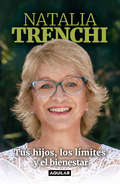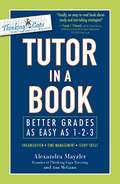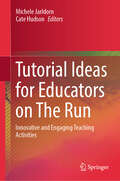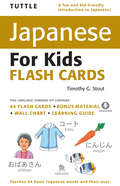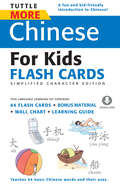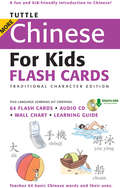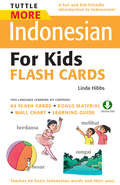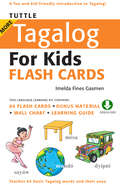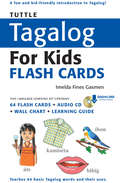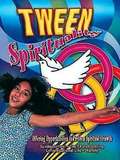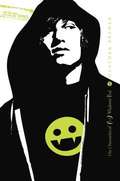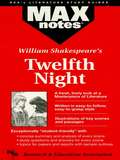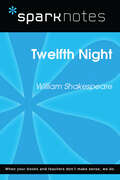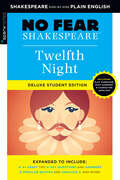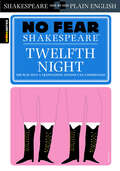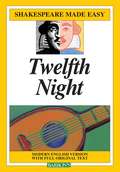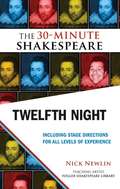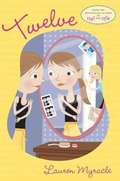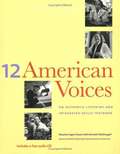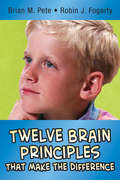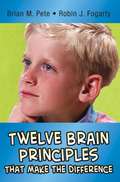- Table View
- List View
Tus hijos, los límites y el bienestar
by Natalia TrenchiSe aborda una problemática clave en la relación actual entre padres e hijos: los límites, cómo establecerlos sin perder el vínculo afectuoso, el respeto y el bienestar. ¿Saben que todo el tiempo están "poniendo límites" a sus hijos, aun cuando no se dan cuenta? Poner límites es mucho más que lograr que "se porten bien": es enseñarlos a vivir como nos parece que es la mejor manera, es trabajar para hacer de ellos seres emocionalmente fuertes y buenas personas. Poner límites hoy encierra nuevos desafíos bien distintos a aquellos a los que nos enfrentábamos incluso apenas diez años atrás. El mundo es otro, y para este mundo es que los tenemos que preparar. En este libro pretendo que compartamos el para qué de los límites en la crianza actual, el cómo y el cuándo, sin descuidar un aspecto crucial para el desarrollo integral: el cuidado del bienestar del niño y del grupo familiar. Por eso es que el foco serán los niños, pero también ustedes, adultos a cargo de esta maravillosa y ardua tarea. Recorrer los años de vida compartidos con los hijos es la experiencia más gloriosa y crucial. Hagamos todo lo posible para que sea una etapa memorable y nutritiva para el adentro de todos, fortalecedora de esos lazos invisibles que duran para siempre. Y para que la familia sea el lugar al que siempre queremos volver.
Tutor in a Book
by Alexandra Mayzler Ana McgannOrganization. Time management. Study skills. These are the three critical skills students need to perform well in school. Most students lack at least one of these skills; many lack all three. Yet without a sound understanding of this all-important learning trifecta, students are likely to fail--over and over again.In this practical hands-on guide, Thinking Caps founder Alexandra Mayzler outlines the unique approach that has made her one-of-a-kind tutoring program such a success with students, parents, and educators alike. This interactive program steps your child through these crucial three areas, providing the worksheets, exercises, and anecdotes she needs to master them in record time. The book also features stories throughout, based on case studies of real-life clients.Special emphasis is placed on helping students understand how their own personalities, behaviors, and habits affect their work. Your child will learn to identify short- and long-term goals, and come to see how good study habits can help him achieve those goals.With this book, your child can get through school with flying colors!
Tutor in a Book: Better Grades as Easy as 1-2-3
by Alexandra MayzlerOrganization. Time management. Study skills.These are the three critical skills students need to perform well in school. Most students lack at least one of these skills; many lack all three. Yet without a sound understanding of this all-important learning trifecta, students are likely to fail--over and over again.In this practical hands-on guide, Thinking Caps founder Alexandra Mayzler outlines the unique approach that has made her one-of-a-kind tutoring program such a success with students, parents, and educators alike. This interactive program steps your child through these crucial three areas, providing the worksheets, exercises, and anecdotes she needs to master them in record time. The book also features stories throughout, based on case studies of real-life clients.Special emphasis is placed on helping students understand how their own personalities, behaviors, and habits affect their work. Your child will learn to identify short- and long-term goals, and come to see how good study habits can help him achieve those goals.With this book, your child can get through school with flying colors!
Tutorial Ideas for Educators on The Run: Innovative and Engaging Teaching Activities
by Michele Jarldorn Cate HudsonThis professional book offers practical materials that provide fellow academics with tools to structure and scaffold learning experiences that reflect the practice context in which social work and human services are offered. It serves as a practical resource tailored for teaching academics in social work and human services education, and it is designed to be useful for learning across other social science and education disciplines as well. The chapters describe the pedagogy informing the design of the learning activities and present and describe specific teaching activities designed to engage students with complex subject matters. Where applicable, some chapters include downloadable resources to be used and implemented by the reader in their teaching. This book is organised into discrete themes that include skills-based activities, embedding academic literacy activities into teaching, social justice learning activities, small group teaching and learning online, using case studies and vignettes for small group learning and embedding learning through games and arts-based artefacts.
Tuttle Japanese for Kids Flash Cards
by Timothy G. StoutA fun and kid-friendly introduction to Japanese!The Tuttle Japanese for Kids Flash Cards ebook is an introductory language learning tool especially designed to help children from preschool through early elementary level acquire basic words, phrases, and sentences in Japanese in a fun and easy way.<P><P>The flashcards can be used as a learning tool in a classroom setting, at home, or anywhere that learning takes place, and can easily be taped around the room for an interactive learning experience. The set contains a total of 64 words organized into thematic categories, including: My Family, Colors, Numbers, Animals, Food, My Body, Clothes, and My Day. All of the words are illustrated-the pictures serve as effective visual aids to help children learn and remember each word's meaning. Words often reflect cultural objects and items and can be studied in any order. Learners may focus on one theme at a time or mix them up for a little more variety.Also included in this ebook is downloadable audio which provides native pronunciation of the words, and sample sentences for practice-sentences that children would use in everyday life. Songs and other activities are also included on the free downloadable audio. Finally, the ebook also includes a wall chart featuring the front of each card for kids to review and a learning guide for teachers and/or parents with tips, activities and more!Once these 64 words are mastered and the child yearns for more, check out Tuttle's MORE Japanese for Kids Flash Cards kit (978-4-8053-0905-6).
Tuttle More Chinese for Kids Flash Cards Simplified Character
by Tuttle PublishingA fun and kid-friendly introduction to the Chinese language!<P><P>The Tuttle MORE Chinese for Kids Flash Cards (Simplified Character Edition) kit is an introductory Mandarin language learning tool especially designed to help children from preschool through early elementary level acquire basic words, Chinese characters, phrases, and sentences in Chinese in a fun and easy way.The flashcards can be used as a learning tool in a classroom setting, at home, or anywhere that learning takes place, and can easily be taped around the room for an interactive way to learn Chinese. The set contains a total of 64 words, which all represent a range of sounds in Mandarin Chinese, organized into thematic categories, including: Going Places, At My House, Things I Like to Do, Actions, Opposites, Weather, and Nature. All of the words are illustrated--the pictures serve as effective visual aids to help children learn and remember each word's meaning. Words often reflect cultural objects and items and can be studied in any order. Learners may focus on one theme at a time or mix them up for a little more variety.
Tuttle More Chinese for Kids Flash Cards Traditional Character
by Tuttle PublishingA fun and kid-friendly introduction to Traditional Chinese!<P><P>The Tuttle MORE Chinese for Kids Flash Cards (Traditional Character Edition) kit is an introductory Chinese language learning tool especially designed to help children from preschool through early elementary level acquire basic words, phrases, and sentences in Chinese in a fun and easy way.The flashcards can be used as a learning tool in a classroom setting, at home, or anywhere that learning takes place, and can easily be taped around the room for an interactive way to learn Chinese. The set contains a total of 64 words, which all represent a range of sounds in Mandarin Chinese, organized into thematic categories, including: Nature, Weather, Opposites, Actions, Things I Like to Do, At My House, Going Places. All of the words are illustrated--the pictures serve as effective visual aids to help children learn and remember each word's meaning. Words often reflect cultural objects and items and can be studied in any order. Learners may focus on one theme at a time or mix them up for a little more variety.
Tuttle More Indonesian for Kids Flash Cards
by Linda HibbsA fun and kid-friendly introduction to Indonesian!<P><P>The Tuttle MORE Indonesian for Kids Flash Cards is an introductory language learning tool especially designed to help children from preschool through early elementary level acquire basic words, phrases, and sentences in Indonesian in a fun and easy way.The flashcards can be used as a learning tool in a classroom setting, at home, or anywhere that learning takes place, and can easily be taped around the room for an interactive learning experience. The set contains a total of 64 words organized into thematic categories, including: Things I Like to Do, Actions, My Day, Opposites, At My House, Weather, and Environment. All of the words are illustrated-the pictures serve as effective visual aids to help children learn and remember each word's meaning. Words often reflect cultural objects and items and can be studied in any order. Learners may focus on one theme at a time or mix them up for a little more variety.Also included is downloadable audio which provides native pronunciation of the words, and sample sentences for practice-sentences that children would use in everyday life. Songs and other activities are included, along with a wall chart featuring the front of each car
Tuttle More Tagalog for Kids Flash Cards
by Imelda Fines GasmenA fun and kid-friendly introduction to Tagalog!The Tuttle MORE Tagalog for Kids Flash Cards is an introductory language learning tool especially designed to help children from preschool through early elementary level acquire basic words, phrases, and sentences in Tagalog-the official language of the Philippines- in a fun and easy way.<P><P>The flashcards can be used as a learning tool in a classroom setting, at home, or anywhere that learning takes place, and can easily be taped around the room for an interactive learning experience. The set contains a total of 64 words organized into thematic categories, including: Nature, Weather, Opposites, Actions, Things I Like To Do, At My House, and Going to Different Places. All of the words are illustrated-the pictures serve as effective visual aids to help children learn and remember each word's meaning. Words often reflect cultural objects and items and can be studied in any order. Learners may focus on one theme at a time or mix them up for a little more variety.Also included is downloadable audio which provides native pronunciation of the words, and sample sentences for practice-sentences that children would use in everyday life. Songs and other activities are also included along with a wall chart featuring the front of each card for kids to review and a learning guide for teachers and/or parents with tips, activities and more!If your child is really interested in learning more words, and you missed the first one, check out the Tuttle Tagalog for Kids Flash Cards (978-0-8048-3957-0).
Tuttle Tagalog for Kids Flash Cards Kit
by Imelda Fines GasmenA fun and kid-friendly introduction to Tagalog!<P><P>The Tuttle Tagalog for Kids Flash Cards kit is an introductory language learning tool especially designed to help children from preschool through early elementary level acquire basic words, phrases, and sentences in Tagalog in a fun and easy way.The flashcards can be used as a learning tool in a classroom setting, at home, or anywhere that learning takes place. The set contains a total of 64 words organized into thematic categories, including: My Family, Colors, Numbers, Animals, Food, My Body, Clothes, and My Day. All of the words are illustrated-the pictures serve as effective visual aids to help children learn and remember each word's meaning. Words often reflect cultural objects and items and can be studied in any order. Learners may focus on one theme at a time or mix them up for a little more variety.A downloadable audio CD provides native pronunciation of the words, and sample sentences for practice, as well as songs and other activities. Also included is a wall chart featuring the front of each card for kids to review and a learning guide for teachers and/or parents with tips, activities and more!
Tween Spirituality
by Marcia StonerA book for teachers and leaders of tweens with articles on spirituality and specific activities to nourish spiritual habits in preteens through Sunday school, worship, and other church settings. Included is a photocopiable section for leaders to use with parents to help parents understand what is appropriate in the spiritual realm for their preteens. Includes activities that can be used within existing programs, ideas for including preteens fully in the life of the entire congregation, details on how to form a "Buddy Class" with another church group, and provides suggestions for teaching tweens how to actively participate in leading group worship experiences. Click here for more information about Tweens curriculum.For updated information and fun for your Tweens, visit us online at www.tweenslive.com.
Twelfth Grade Kills (The Chronicles of Vladimir Tod)
by Heather BrewerVladimir Tod--NORMAL TWELFTH-GRADE STUDENT OR POWERFUL VAMPIRE? Vlad's running out of time. The Elysian Council has given him only weeks to live, and that's if the Slayer Society doesn't kill him--along with all the citizens of Bathory--first. Then there's the issue of Vlad's father, who may or may not be still alive after all these years. Oh yeah, and that tiny little devil in the Pravus prophecy about Vlad enslaving Vampirekind and the human race. So much for college applications. In this epic finale to Heather Brewer's heart-stopping Chronicles of Vladimir Tod, dark secrets will be revealed, old friends will become new enemies, and warm blood will run cold. Just be careful it isn't yours.
Twelfth Night
by William Shakespeare: Edited by Google booksIn this edition of Shakespeare an attempt is made to present the greater plays of the dramatist in their literary aspect, and not merely as material for the study of philology or gramMar. Criticism purely verbal and textual has only been included to such an extent as may serve to help the student in the appreciation of the essential poetry. Questions of date and literary history have been fully dealt with in the Introductions, but the larger space has been devoted to the interpre¬tative rather than the matter-of-fact order of scholar¬ship. ?sthetic judgments are never final, but the Editors have attempted to suggest points of view from which the analysis of dramatic motive and dramatic character may be
Twelfth Night (Maxnotes Literature Guides)
by Frederic KolmanREA's MAXnotes for William Shakespeare's Twelfth Night The MAXnotes offers a comprehensive summary and analysis of Twelfth Night and a biography of William Shakespeare. Places the events of the play in historical context and discusses each act in detail. Includes study questions and answers along with topics for papers and sample outlines.
Twelfth Night (SparkNotes Literature Guide Series)
by SparkNotesTwelfth Night (SparkNotes Literature Guide) by William Shakespeare Making the reading experience fun! Created by Harvard students for students everywhere, SparkNotes is a new breed of study guide: smarter, better, faster. Geared to what today's students need to know, SparkNotes provides: *Chapter-by-chapter analysis *Explanations of key themes, motifs, and symbols *A review quiz and essay topicsLively and accessible, these guides are perfect for late-night studying and writing papers
Twelfth Night: No Fear Shakespeare Deluxe Student Editions - Shakespeare Side-by-Side Plain English (No Fear Shakespeare)
by William Shakespeare SparkNotesShakespeare everyone can understand—now in new DELUXE editions! Why fear Shakespeare? By placing the words of the original play next to line-by-line translations in plain English, these popular guides make Shakespeare accessible to everyone. They introduce Shakespeare&’s world, significant plot points, and the key players. And now they feature expanded literature guide sections that help students study smarter, along with links to bonus content on the Sparknotes.com website. A Q&A, guided analysis of significant literary devices, and review of the play give students all the tools necessary for understanding, discussing, and writing about Twelfth Night.The expanded content includes: Five Key Questions: Five frequently asked questions about major moments and characters in the play. What Does the Ending Mean?: Is the ending sad, celebratory, ironic . . . or ambivalent? Plot Analysis: What is the play about? How is the story told, and what are the main themes? Why do the characters behave as they do? Study Questions: Questions that guide students as they study for a test or write a paper. Quotes by Theme: Quotes organized by Shakespeare&’s main themes, such as love, death, tyranny, honor, and fate. Quotes by Character: Quotes organized by the play&’s main characters, along with interpretations of their meaning.
Twelfth Night: No Fear Shakespeare Side-by-Side Plain English (No Fear Shakespeare)
by William Shakespeare SparkNotesThis No Fear Shakespeare ebook gives you the complete text of Twelfth Night and an easy-to-understand translation.Each No Fear Shakespeare containsThe complete text of the original playA line-by-line translation that puts Shakespeare into everyday languageA complete list of characters with descriptionsPlenty of helpful commentary
Twelfth Night: Or, What You Will (Shakespeare Made Easy)
by William ShakespeareA Simon & Schuster eBook. Simon & Schuster has a great book for every reader.
Twelfth Night: The 30-Minute Shakespeare
by Nick NewlinPlanning a school or amateur Shakespeare production? The best way to experience the plays is to perform them, but getting started can be a challenge: The complete plays are too long and complex, while scene selections or simplified language are too limited."The 30-Minute Shakespeare" is a new series of abridgements that tell the "story" of each play from start to finish while keeping the beauty of Shakespeare's language intact. Specific stage directions and character suggestions give even inexperienced actors the tools to perform Shakespeare with confidence, understanding, and fun!This cutting of TWELFTH NIGHT, Shakespeare's bittersweet comic masterpiece, consists of three classic scenes. After an extended introductory narration, the action begins with Feste the Fool consoling a mourning Lady Olivia with wit and wordplay. Viola (disguised as a male Cesario) woos Olivia on behalf of Duke Orsino, but Olivia falls for the messenger Viola/Cesario instead. The final scene in Olivia's kitchen gives young actors an easy and specific way to play late-night revelry, as Sir Toby Belch and his friends amuse themselves with the censorious but ultimately hapless Malvolio. One highlight of the production is a group "rap" version of the song "Come Away Death."The edition also includes an essay by editor Nick Newlin on how to produce a Shakespeare play with novice actors, and notes about the original production of this abridgement at the Folger Shakespeare Library's annual Student Shakespeare Festival.
Twelve
by Lauren Myracle[From The Front Flap.] Eleven was big-a new best friend and a new worst friend- but twelve is going to be huge. Last year everyone else changed, but now it's Winnie's turn to "develop": junior high, pierced ears, sleepaway camp, and bra shopping with Mom- in public. Ack! It's a whole new year of big changes and small moments for Winnie, the beloved, quirky-cool heroine of Eleven. Funny, sweet, real, and sometimes really awkward, being twelve is fabulous!
Twelve American Voices: An Authentic Listening and Integrated-skills Textbook
by David Isay Maurice Cogan Hauck Kenneth MacdougallThis book was written to help students improve their English and to explore American culture.
Twelve Brain Principles That Make the Difference
by Brian M. Pete Robin J. FogartyMake instructional decisions that optimize learning!Presenting a unique collection of twelve brain principles, the authors illustrate how the brain learns best and demonstrate how teachers can enhance students' learning potential. Conversational and user friendly, this resource describes how the brain stores and recalls information, guiding teachers in making everyday decisions about academic content and the emotional well-being of their students. Twelve Brain Principles That Make the Difference will show you how:Challenge engages the brainThe brain processes parts and wholes simultaneouslyEach brain is uniqueThe search for meaning is innate
Twelve Brain Principles That Make the Difference (The\nutshell Ser.)
by Brian Pete Robin FogartyTwelve Brain Principles That Make the Difference by Brian Pete and Robin Fogarty, is about how the brain learns best and all the things teachers can do to facilitate the learning part of the teaching scene. This book presents a unique organization of Renate and Geoffrey Caine's twelve brain principles. The twelve principles are arranged in four specific quadrants. Each quadrant speaks to a particular aspect of the high-achieving classroom and highlights how instructional decisions are governed by the twelve principles.
